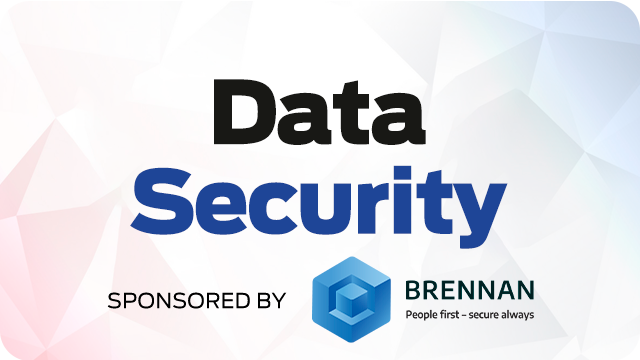One of the biggest changes in recent times to working life is that going into an office has become optional for staff. Well, almost optional, as there are scenarios that require turning up at the office; not only that, but heading into the office has compelling advantages for staff as well.
To make the most out of hybrid workplaces, they need careful consideration to function optimally for both staff and employers, as solutions provider Kytec has found over the years.
A big part of the reason why there are hybrid workplaces now is that employers and employees need to adapt to the unexpected. Let’s start there, with the COVID-19 pandemic: did Kytec get to have a dry-run before the lockdowns in 2020?
“Wow, no, I don’t think we knew about the lockdowns coming, so no one really did any test runs at all”, Kytec managing director David Okulicz said with laugh.
“Working from home in our industry, and even with our customers, happened in pockets.”
“Typically, it was those that travelled; pre-COVID I was travelling a lot so you would work from home in the morning before going to the airport, or you ended up doing it from hotels while on the road.”
“Definitely, the scramble that we went through when they did the first lockdown, was pretty much the first run for both us and our customers.” Okulicz added.
All manners of issues that nobody had to consider popped up in the process. Okulicz mentioned remote work licensing which was traditionally through a virtual private network (VPN).
Normally, you would size the VPN at say 10 percent of the workforce.
“It wasn’t ever designed for 100 per cent of people working from home, because I don’t think anyone had imagined a scenario where that would happen,” Okulicz said.
While an extreme scenario, the lockdowns drove home the need to understand the demands of a new reality quickly. It focused Kytec even more on the requirements for a hybrid workplace.
Staff and organisations can miss out with WfH
But why not just go fully WfH? Okulicz conceded that working from home has incredible personal benefits to staff, and there’s nothing employers can do to replace them.
“If they move their career aspirations aside, 90 percent of people would just want to work from home,” Okulicz said.
There will be people, a small cohort, that want to come into the office because it’s social, they like the environment and value that, he said.
Nothing is ever black and white and fully straightforward though, and there are some real career risks for employees with WfH, particularly for younger people starting out.
“Probably one of the biggest impacts we saw from not being in the office is that the learning by association thing is not happening,” Okulicz said.
You hear how people talk about how they solved an issue, or even just a senior person working on something with a customer, and a junior staffer wanting to tag along, to learn more.
“Send everyone home, and you miss that opportunity,” Okulicz pointed out.
How much this matters is nuanced, depending on staff roles.
“A developer that sits there, and belts out code for eight hours a day is going to be more productive at home than in the office where they could potentially be distracted,” Okulicz said.
For team workers however, its a different story. When an employee needs the team to do the work, and to report progress to a team leader once a day, there’s a risk of productivity being lost in a WfH scenario, Okulicz said.
Finding the hybrid work balance
There are organisational objectives as well to consider, and companies have to figure out where the balance is between those and what employees want.
This is before getting into thorny WfH issues such as whether the home is suitable for purpose. This may be difficult, particularly for people starting out in their careers and who share housing.
Even if a company’s tech stack is robust, employees leaving the office may not have the necessary security posture in their homes with the appropriate gear, particularly if they have to handle confidential and/or sensitive personal information.
It can be outsiders being able to overhear work conversations, or a simple issue like not having your colleagues next to you to verify things.
“Impersonation is a massive problem, and a much bigger threat when working from home,” Okulicz said.
Okulicz gave the example of his chief financial officer sitting next to him in the office. If that person gets an email about transferring money, getting gift vouchers, paying something, that would by itself raise a red flag.
“What are you doing, sending me emails when you’re sitting next to me?” the CFO would ask.
In a WfH setting, especially if different time zones are involved, that basic security check could fail and the email would be responded to.
However, WfH isn’t going away so what can employers do to encourage face-to-face in an office, particularly for team workers who need to collaborate for best results?
“One of the things we did try to bring people back – and it’s not just about whacking a screen and video conferencing unit on a wall – is about understanding how each space could and would be used,” Okulicz said.
Kytec has built a bunch of focus rooms for meetings, with space for one or two people. This lets staff in the office hold meetings with others who are remote, without having to wear headphones, in a quiet space that’s nice to be in, Okulicz said.
“If you incorporate workspace design into your WfH or hybrid work strategy you get this really great outcome where the office just seems to work for everybody,” he said.
Work continues to change and evolve, and offices have to adapt to make the most of it. Kytec’s approach has helped the company to match what the organisation wants to achieve with staff getting the benefits they want.
As a result, staff retention, productivity and morale have improved and flexibility is providing benefits for both staff and Kytec.






